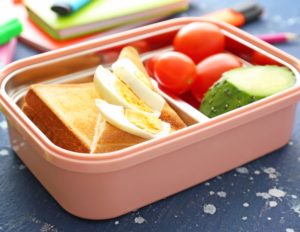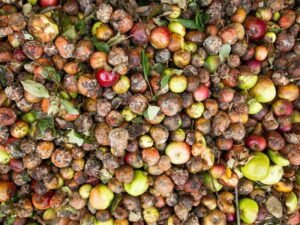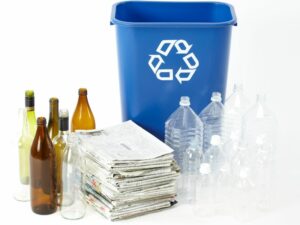Zero waste
What Do “Best By” Dates On Food Really Mean?
Have you ever found yourself wondering about the “best by” date on food items? Are they still safe to eat even though the date has passed? How long will your favorite food or beverage stay safe? Surprisingly, the answer is not on the date label. Most date labels tell you about food quality, not safety. We…
Read MoreReduce Your Food Waste This Holiday Season
Did you know an average American throws away a pound of food daily? 1 On top of that, Americans generate 43% more household waste each year between Thanksgiving and New Year’s, 53% of which is food waste.2 Read more about holiday food waste impacts at the ReFed site. To bring you tips on how to…
Read MoreBack to School: How Can My Child’s Lunch Be Made Low or Zero Waste?
Yes, it absolutely can! By making school lunches more eco-friendly, and by encouraging your kid to recycle and compost, you can significantly reduce your household’s waste. Some helpful guidelines are… An added bonus of paying attention to these guidelines is that you can determine what materials your child’s lunch containers are made of. For example,…
Read MorePicnic in sustainable style!
The weather is warm and the sun is shining, making it a lovely time to picnic. It’s easy to wrap your picnic food in plastic wrap, put it all in a bag and throw all your trash away at the nearest trashcan. However, the earth, the water, the landfill, and your garden will all thank…
Read MoreTrack, Reduce, and Conserve Your Water Use with Flume Smart Home Water Meter
We’re all working together to conserve our water and keep our water bills down because now, more than ever, we need to be mindful of our water use. But sometimes it’s hard to know where to start. That’s where Flume comes in! Flume’s Smart Home Water Monitor straps around your water meter and lets you…
Read MoreTo Reduce Food Waste, Investors and Community Organizations Need to be at the Table
By Bea Miñana (Closed Loop Partners) and Jessica Toth (Solana Center for Environmental Innovation) Food waste is created at every point in our current food supply chain––on the farm, during manufacturing and transportation, on store shelves, at restaurants, and in our homes. Today, most of that uneaten food ends up in landfills, or is otherwise…
Read MoreRecycling – Why is it important?
Recycling conserves natural resources and lets us skip the harmful extraction and refining process that goes into making products from virgin materials. Making stuff from the materials of other stuff uses less energy and water and stops that stuff from filling our landfills. Recycling one… Plus, recycling accounts for 3.1 million jobs in the U.S.…
Read MoreMethods to Reduce Waste
Waste occurs in many areas of a business, but each cause of waste has a myriad of solutions that will reduce waste, save money, and build a more dedicated team and customer following. Once you understand what is being wasted in your business and why, you can begin to reduce this waste by implementing some…
Read MoreUnderstanding Your Business’s Waste
The first and most important step to reducing waste is understanding what you are wasting and why. Food waste from restaurants can occur before the food is served from over-ordering ingredients, improper storage, and inefficient menus, or after the customer has received the food because of too large portion sizes and wasteful serving practices. There are…
Read MoreEPS Food Container Alternative List
EPS is “expanded polystyrene,” commonly known by the brand name Styrofoam™. There are environmental concerns with EPS, including difficulty in recycling, source of man-made marine debris, and greenhouse gas emissions from the embedded energy of the manufacturing process. Additionally, EPS food containers are not fully recyclable in a single-stream process because they break up in…
Read More









